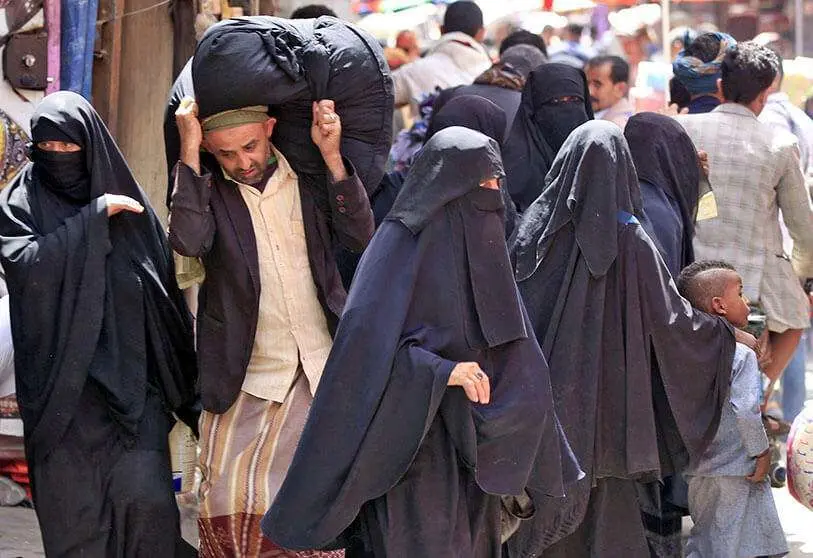The B-side of the Houthi war: Yemeni women

The UN had been carrying out the report since the beginning of last January, finally, it was concluded on 5 December 2021, and presented to the Security Council of the International Organisation. The investigation has a total of 300 pages and contains the study of 9 cases where "politically or professionally active women were detained, tortured, mutilated, sexually violated or repressed".
Through the investigation, the UN experts have found a pattern of abuse, rape and arbitrary detention of women activists in areas under Houthi power, supported by the Iranians. These areas are also heavily war-torn and influenced by the extremist ideology that the insurgents are imposing on their citizens.

Last year, Sultan Saleh Aida Aida Zabin, head of the Criminal Investigations Department in Sana'a, faced numerous UN sanctions following a massive wave of arrests, torture and sexual violence against imprisoned politically active women. The Sultan was accused of committing violations of international humanitarian law and human rights abuses in Yemen. Despite this, abuses against women have continued to take place in the country, as the new UN report has shown.
The Houthis are targeting women in a "systematic campaign to ensure the adherence of the population to their ideology", thus affecting other vulnerable groups such as children. The rebels' aim is to gain local support to win the war against the internationally recognised government power of Abdo Rabu Mansur Hadi, the UN experts said.

"The increased repression of women expressing political opinions affects their ability to participate in decision-making processes related to conflict resolution". Women activists against the Houthis are persecuted on a daily basis and are accused of "prostitution", as rebels make compromising sexual recordings in order to blackmail them and discredit them in the eyes of their people, the UN report says. In addition, "these measures also have a deterrent effect on other women leaders".
Meanwhile, the Houthis continue to pressure the population to attend summer camps and cultural courses, which many children have attended and ended up on the battlefield. Through these activities, the rebels promote their extremist ideology. Those who refuse to go face consequences such as detention or rape, which happened to two women who resisted going to such indoctrination sites. Those detained by the Houthis rarely face fair trials, as they are "arbitrarily detained for years" and when they are released, they are reintegrated into society as if nothing had happened, despite having lost their homes and jobs. "This is particularly the case for women who, in addition to the trauma, have to deal with the social stigma associated with their detention," the report said.

The Embassy of the Republic of Yemen in Washington, D.C., spoke out on the report, stressing the deaths of vulnerable groups such as women, children, journalists, migrants, etc., as well as condemning the indoctrination taking place in camps and courses, and the rape and violence affecting women. They also called for an end to radicalism and the Houthi conflict.
The UN expert panel condemned all that is happening, as well as the Houthi policy of sexual violence and repression against women politicians and professionals active in the country's capital, Sana'a, and in the northern part of the country. Since the beginning of the brutal Houthi violence in 2014, more than 350,000 people have been killed, many people are in extreme poverty, in addition to the ongoing migration of citizens. Generating "the biggest and worst humanitarian tragedy on the planet", according to the United Nations.








